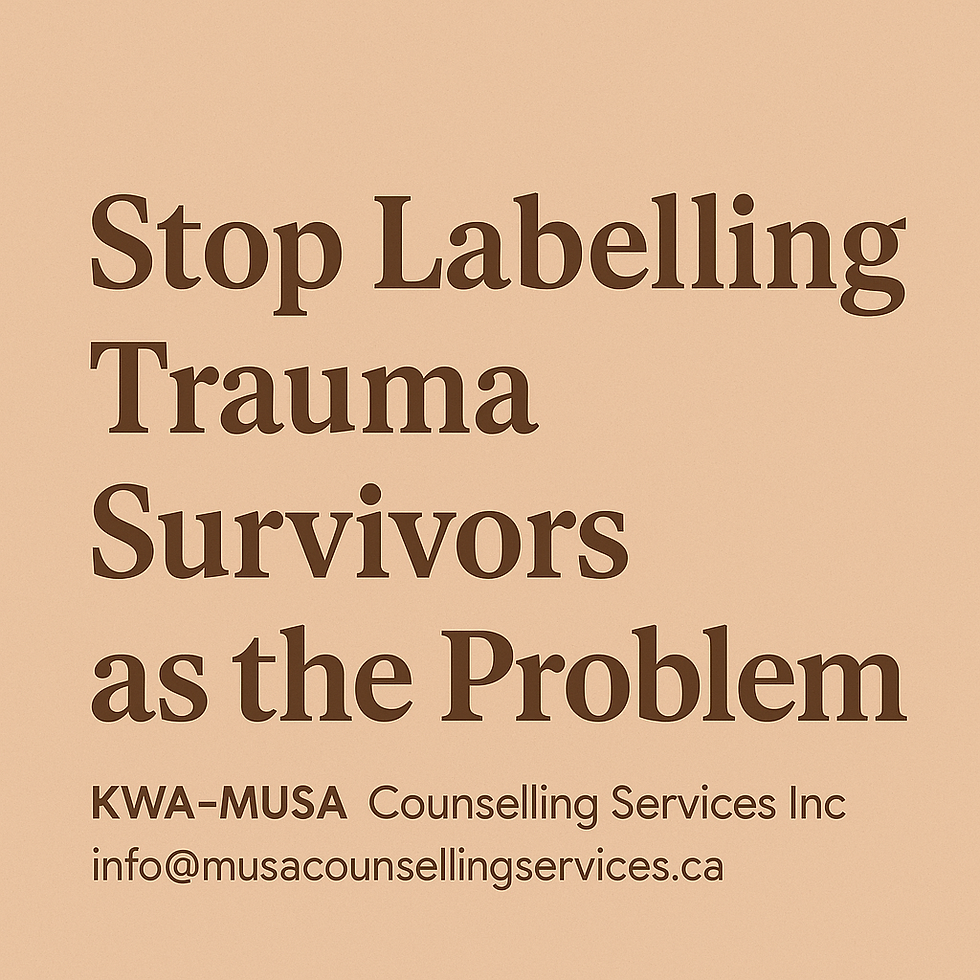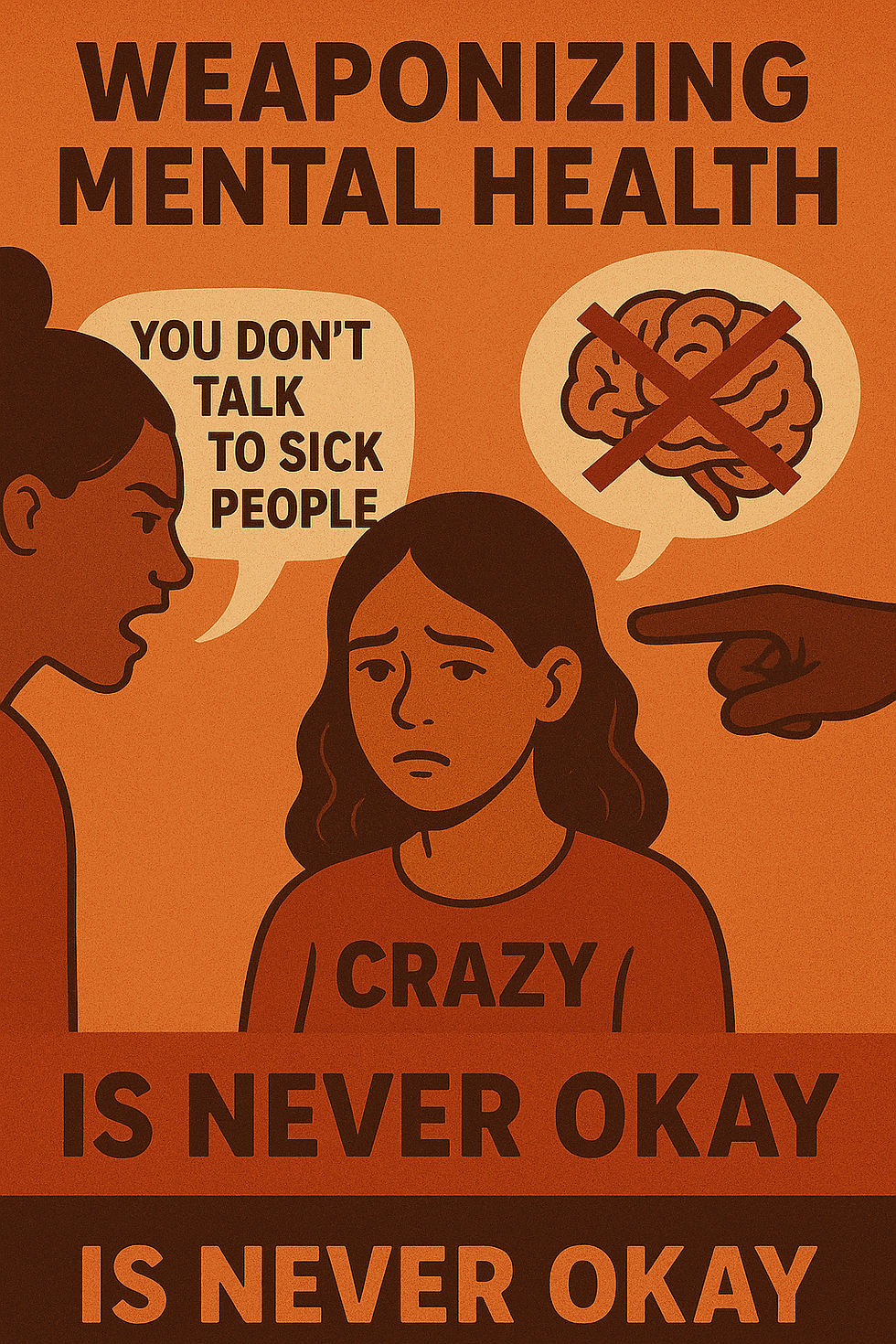Stop Labelling Trauma Survivors as “The Problem”
- GLORIA MHLANGA
- Oct 22
- 2 min read


When Sharing Your Story Becomes a Weapon
There’s something deeply painful about being labelled “bad energy” or “difficult”—especially when all you did was trust someone enough to share your story. For many of us who live with trauma, vulnerability is an act of courage. But too often, that courage is met with judgment, gossip, or silence.
I’ve lived this. I once shared my story in trust, only to have it used against me later when I spoke up about injustice. Instead of being heard, I was labelled. Instead of being supported, I was gaslit—told that my feelings were just a reflection of my “trauma.”
This is what emotional violence looks like in workplaces that claim to be trauma-informed.
⸻
When Trauma Becomes a Workplace Weapon
In helping professions, we teach clients about empathy, boundaries, and healing. Yet, those same principles are rarely applied to one another. Too often, colleagues weaponize what they know about our pain, turning it into a reason to silence or dismiss us.
When someone who’s experienced trauma advocates for fairness, they’re called “emotional.”
When they speak truth to power, they’re called “angry.”
When they ask for accountability, they’re labelled “the problem.”
But here’s the truth: a trauma response is not a character flaw. It’s a natural reaction to pain and injustice.
⸻
To Every Young Black Woman Reading This
You are not your trauma.
You are not the whispers that say you’re too sensitive, too intense, or too much.
You are not the problem just because your truth makes others uncomfortable.
Your voice deserves to exist without apology.
Your boundaries deserve to be respected without question.
Your story deserves to be told without being weaponized.
⸻
Let’s Normalize Trauma Responses
Let’s stop pathologizing emotion. Let’s stop calling people “unprofessional” because they cry, or “hostile” because they speak firmly. Healing doesn’t mean silence—it means learning to express pain safely and to name injustice when it appears.
Workplaces—especially in helping fields—must model what they preach. If we tell clients that healing happens in safety, we must build workplaces where colleagues feel safe too.
⸻
A Safe Space for Healing
To every young woman, especially every young Black woman navigating systems that don’t always see you:
You are not alone.
This space—this post, this platform—is for you. For us.
To share. To heal. To be heard.
Let’s build a culture that understands trauma, rather than weaponizes it.
Because healing isn’t just about surviving pain—it’s about reclaiming your story and refusing to be defined by someone else’s misunderstanding of it.
⸻
🌿 Join the Conversation
At KWA Musa Counselling, we believe healing happens when truth is spoken and stories are honoured.
If this message resonates with you, share your thoughts in the comments or message us to join our safe-space dialogue circle for Black women in healing.
Together, we heal. Together, we rise.
⸻



I just wanted to say how much I appreciate your blog posts. Each time I read one, I feel deeply inspired and encouraged to keep learning and healing. Your words reflect so much authenticity, compassion, and understanding — exactly what I believe is needed in therapy. Reading your work has truly strengthened my interest in counselling, because you embody the kind of support and presence I’d want in a therapist. Thank you for continuing to share such meaningful and empowering reflections.